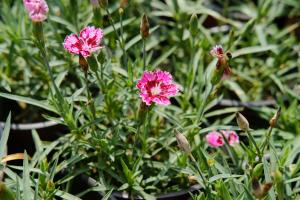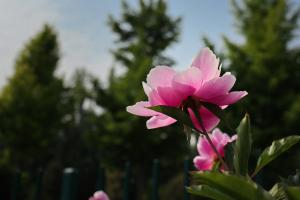Is Tap Water Fine for Plants?
Many people wonder whether it's safe to use tap water on their plants, especially those who are gardening for the first time. In short, tap water is generally safe for most plants, but there are some factors to consider before you start watering your plants with it regularly.
Chlorine and Fluoride Levels
Most tap water contains chlorine and fluoride, which are added to kill bacteria and improve dental health, respectively. However, these chemicals can harm plants in high doses, especially sensitive ones. If you notice that your plant leaves are turning brown or yellow, curling or wilting, it could be a sign of damage from chlorine or fluoride in the water. To avoid this, you can let the tap water sit out for a day or two before using it to allow the chlorine and fluoride to evaporate.
Water Hardness
Water hardness refers to the amount of dissolved minerals, such as calcium and magnesium, in the water. While these minerals are essential to human health, too much of them can cause water hardness, which can harm plants by clogging their roots or interfering with nutrient absorption. You can test your tap water's hardness with a water test kit, which you can easily purchase online or at a hardware store. If your water is too hard, you can use a water softener or a reverse osmosis system to filter it out.
pH Level
The pH level of the water refers to how acidic or alkaline it is. Most plants prefer slightly acidic water, with a pH level between 5.5 and 6.5. If your tap water is very alkaline, with a pH level higher than 7, you can adjust the pH level by adding a small amount of vinegar or citric acid to the water. However, be careful not to add too much, as it can harm your plants.
Contaminants in Tap Water
Tap water can also contain various contaminants, such as lead, pesticides, and pharmaceutical residues, depending on where you live. These contaminants can be harmful to both plants and humans, especially if they are present in high concentrations. To reduce the risk of contamination, you can use a water filter or purchase bottled water for your plants.
The Bottom Line
In conclusion, tap water is generally safe for most plants, but it's important to consider the factors above before using it. If you notice any signs of damage, such as brown or yellow leaves, it could be a sign of too much chlorine or fluoride or water hardness. By testing your water's pH level and using a water filter or a softening system, you can help ensure that your plants thrive and stay healthy.

 how many times do yo...
how many times do yo... how many planted tre...
how many planted tre... how many pine trees ...
how many pine trees ... how many pecan trees...
how many pecan trees... how many plants comp...
how many plants comp... how many plants can ...
how many plants can ... how many plants and ...
how many plants and ... how many pepper plan...
how many pepper plan...































